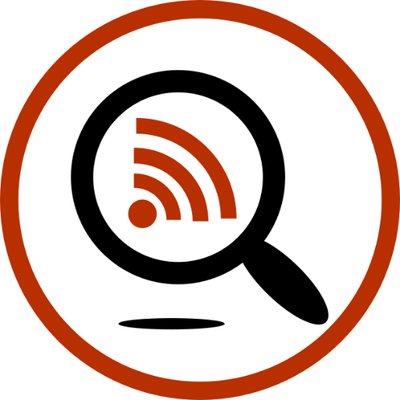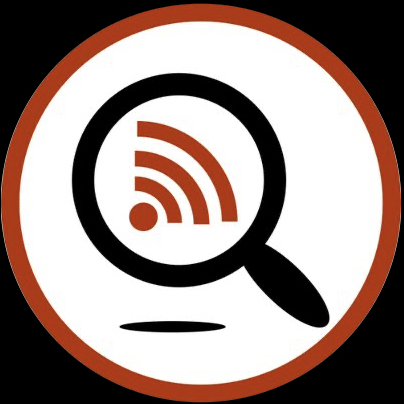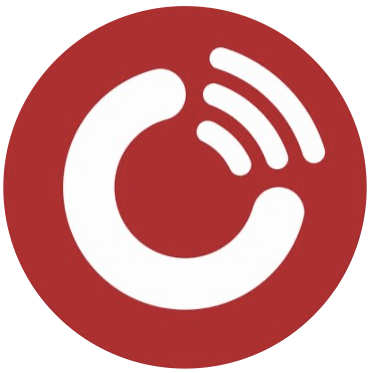Listen and subscribe where you get your podcasts
About this episode
Dr. Terry Hébert is a Professor within the Department of Pharmacology & Therapeutics at McGill University. Much of his work is based on GPCR signaling in the context to cardiovascular diseases. In this special episode of the Dr.GPCR podcast, we re-connected with Dr.Terry Hebert to chat about how he and his team has been adapting to the new reality of working remotely. Terry tells us about the importance of adapting, communicating, and being mindful of those around us.
Dr. Terry Hébert on the web
Podcast transcript
Dr. Yamina Berchiche 0:30
Hey, Terry, how are you?
Dr. Terry Hébert 0:32
Good, Yamina. How are you?
Dr. Yamina Berchiche 0:33
Very good, very good. So since we spoke last time earlier this year things have changed. And I wanted to reach back and see how you have been with the pandemic going on and how it was affecting you, your family life, your scientific life. And obviously how people are working right now in the lab or how they're managing with what's happening in the world.
Dr. Terry Hébert 0:58
It's complicated because I mean, the university has shut down all but sort of critical operations, we still have access to the lab, if we had experiments to do that couldn't be shut down. So we made a decision, I guess a month and a half ago to kind of stop going to the lab because Montreal being yet well, we didn't know it at the time, but Montreal being the epicenter of the disease in this country, we thought we would, we don't regret that decision now. Although we are starting to plan reopening at least scale back reopening with social distancing in the lab. As well as planning for social distancing between labs on our floor so it's a logistical puzzle now we're trying to put together
Dr. Yamina Berchiche 1:49
Alright, and so what are people doing? What are you doing everyday at home?
Dr. Terry Hébert 1:56
So, in the last, I guess, I don't know, in the last three weeks we've had a few papers accepted, we're still submitting other ones. So people have things to do. And several people in the lab have bioinformatics projects that now they have the time to kind of work on. Several others are trying to write up their thesis now in relative tranquility and, and isolation. So me, I am kind of overseeing that, but because of some scheduling changes for the medical school, I'm actually teaching pretty much full time. I have 30 hours in this month alone of contact time on Zoom teaching. So it never really stopped being busy for me and, you know, all my other administrative responsibilities. I spend a lot of time on Zoom. But the work goes on and we're trying to get back in the lab.
Dr. Yamina Berchiche 2:57
That's great. Congratulations on the papers. I was wondering when you posted it on Facebook if those papers were the ones that we were talking about earlier, in February. When we were talking, you had mentioned that you submitted a paper, and you were expecting it to be rejected.
Dr. Terry Hébert 3:12
Well, it did get rejected several times. And it's now in another journal. Now, the one the ones that got accepted, we're not ones that we talked about there. One is in scientific reports on a BRET-based platform to capture signaling downstream beta-1 adrenergic receptor. That's in collaboration with the Bouvier lab and several other colleagues. And then another one is just a little review article that we wrote, which is related to the one that we talked about earlier on transcriptional regulation, and drug targets associated with that. So yeah, those other two papers that we did talk about, they're still under review. One we hope for an answer soon and one we're happy because it's gone out to review at a decent journal. So, we’ll see.
Dr. Yamina Berchiche 4:06
That's fantastic. Do you keep in touch with people in the lab through Zoom? You talk to your students every day. How do you manage that?
Dr. Terry Hébert 4:16
So we have a lab meeting every Monday and we have a journal club every Friday, and I usually end up speaking with them, you know, several times a week, either through slack or through Zoom or through email or by telephone. Right. So kind of watching them and seeing that they're okay. And most of them have built their little networks online. And so this Tuesday, we have a faculty versus students trivia night on Zoom. So we're gearing up for that. Hopefully, it's stuff you know, before 2010, in which case, I'll be good.
Dr. Yamina Berchiche 4:55
That's great. That's great. So it's more physical distancing than social distancing in that sense.
Dr. Terry Hébert 5:00
Oh, yes. So you know, you don't want anybody to be left behind. McGill like, like most big internationally known universities there are a lot of students who come from different places, they're away from their families, and we want to make sure that they're not feeling abandoned or, and you also have to manage now with the reopening of students who have asthma, students who have other underlying conditions, the problem with public transit being the epicenter of the pandemic in this country. So lots of things to manage, but I think for now, anyway, it doesn't seem like the two months have gone by pretty fast for me, but I'll be happy when I can get back to work in my normal fashion.
Dr. Yamina Berchiche 5:45
Absolutely. So one last question before I let you go. What are your thoughts about a vaccine? Everybody's talking about the vaccine, every company is racing towards a vaccine? We all know that it's easier said than done. What are your thoughts?
Dr. Terry Hébert 5:59
So I think there's going to be a vaccine. And I think some people were kind of opting for a vaccine based on challenge trials. So some people would get the placebo and the active virus. I don't think that's a good idea. Because we don't have, we don't really have good drugs to deal with the disease where people get sick. So I think in two or three months, we'll have a better handle on how well Remdesivir works, how well some of the combinations that have come out in trials in the last week, actually deal with the disease once you get it. If we have a way to control the disease and keep people from getting really sick. I think we can go to challenge trials more rapidly. If not, we're going to be stuck doing sort of slow vaccine development, but I'm hopeful that we'll be able to do challenge trials. But as I look in the literature, there's just a couple weeks ago, at least 90 different vaccine trials. One of them hopefully, will end up working. But, you know, it's complicated now by the fact that, you know, the one country we used to look to for kind of guiding the process is sort of gone. Right. The US has kind of imploded in many ways in terms of how it's managed and how it's functioning. So that's not helping things for sure. When the President of the United States is telling people to drink bleach and try untested medicines.
Dr. Yamina Berchiche 7:35
Not good, not good. I think one of the biggest problems here in the US is the fact that we don't know what we don't know. Things are not documented. So you don't know which hospital has what in terms of mask, in terms of any type of PPE, but also in terms of staff and in terms of space to treat these patients.
Dr. Terry Hébert 7:59
It's not really better here right? I think that they're not really well prepared for dealing with it here either. And nobody knows what to do. It's something that's been coming that none of us really prepared for. We knew when we had to do it, but we never did it. So now we're living with the consequences of that.
Dr. Yamina Berchiche 8:29
And we didn't know how to get prepared for it, we can just hope for the best and it's, I'm watching the news regularly and you look at different countries and everybody's trying to do their best but sometimes it just doesn't happen on time. Especially now with this disease that you can have a bunch of symptoms and it's very difficult to say who is going to get sick, or who is going to die from it. And who is gonna just you know, sneeze and cough and move, move on from there. It's hard.
Dr. Terry Hébert 9:00
And honestly, it couldn't be worse right? This disease most people survive right when the next one comes. Let's hope we learned something from this one. I really, I think we could have been prepared, right? People have been warning us that these things are coming. But we ignored the warnings. And, yeah, it's gonna cost us it's gonna cost the economy, which is kind of not really relevant, but it's gonna cause people who are fragile and because of the economy, right, that those are the people we have to protect not not big corporations who, you know, probably in a sense part of the cause, right? Globalization is not something that is without its consequences here.
Dr. Yamina Berchiche 9:44
So, definitely not. We can hope for the best and hopefully that one of those 90 candidates will make it and we can all get back to a new normal.
Dr. Terry Hébert 9:56
Yeah, new normal.
Dr. Yamina Berchiche 9:58
Thank you so much, Terry. Stay safe.
Dr. Terry Hébert 10:01
You too stay safe. Thanks for checking in.
Dr. Yamina Berchiche 10:03
Thanks bye bye
Dr. Terry Hébert 10:05
Bye Bye
*This transcript has been minimally edited to facilitate reading.


































